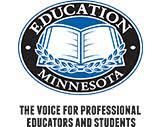Education MN Braces for Loss of Thousands of Members and Millions of Dollars
The state’s most powerful public employee union—Education Minnesota—has quietly begun laying the groundwork to prevent the potential loss of thousands of members and millions of dollars, depending on the outcome of a landmark labor rights case widely expected to go before the U.S. Supreme Court next term.
The pivotal case involves a public employee from Illinois named Mark Janus, who’s asked the high court to restore his First Amendment rights by reversing a 1977 decision (Abood v Board of Education) that established “fair share” union fees for public employees.
If the Court takes Janus’ case and he wins, unionized public employees in non-right-to-work states like Illinois and Minnesota will have the right to keep their jobs even if they do not join or financially support the union.
As a result, Education Minnesota recently asked its local union representatives to get all 86,000 teachers to sign a “Membership Renewal” form that automatically renews payment of union fees every year unless the teacher remembers to opt out in writing. (You can view the form here.)
“The teachers’ union is betting that most teachers will just sign the card without reading it, or understanding what it means—and just keep paying,” said Kim Crockett, Vice President and General Counsel at Center of the American Experiment.
Education Minnesota also plans to raise teachers’ annual dues—now roughly $615—by $14 a year in anticipation of the fallout from the Janus case, according to a union representative who contacted American Experiment.
The teachers’ union collects about $50 million in revenue a year. President Denise Specht, a former Kindergarten teacher, earns about $200,000 a year and oversees dozens of union employees making between $75,000 and $125,000 a year, according to federal LM-2 filings.
Education Minnesota’s aggressive actions signal concern over the possibility of the high court ending the requirement that public employees pay their “fair share” of collective bargaining costs as a condition of employment.
The State of Minnesota currently requires school districts to deduct union dues (or “fair share” fees) from teacher paychecks and deposit the funds with the union.
As part of the effort to get teachers to renew their membership in anticipation of the Janus case, Education Minnesota launched a campaign, “The Power of We.”
“When even one educator opts out of our union it weakens us all. That means less power, fewer training opportunities and lower wages,” according to campaign “Talking Points” used to prevent defections from union ranks. The union asked local representatives to meet with teachers and then use “value-based points” that “speaks to that member.” Examples include “Justice,” “Unity” and “Champions.”
Upon their return to the classroom this fall, teachers all over the Minnesota will watch a video featuring Specht promoting membership and asking them to sign a renewal card. The union has already filled out cards for all 86,000 teachers to sign, according to the teacher in contact with the Center.
The fine print at the bottom of the form is hard to read, but it is the key “contractual” language that the union is anxious to renew before the Janus case is decided in 2018:
“I agree to submit dues to Education Minnesota and hereby request and voluntarily authorize my employer to deduct from my wages an amount equal to the regular monthly dues uniformly applicable to members of Education Minnesota or monthly service fee, and further that such amount so deducted be sent to such local union for and on my behalf. This authorization shall remain in effect and shall be automatically renewed from year to year, irrespective of my membership in the union, unless I revoke it by submitting written notice to both my employer and the local union during the seven-day period that begins on September 24 and ends on September 30.” (Emphasis added.)
“The problem is that state labor laws favor unions, not employees,” Crockett said. “For teachers, the ‘opt-out’ is a narrow, 7-day window from September 24 to September 30. Even if you remember, you have to follow very specific steps—and do it again the next year.”
American Experiment’s research has found government unions all over the country are hoping to slow the loss of members and revenues with this type of “auto-renewal” should Mark Janus win his case. The U.S. Supreme Court is expected to grant or deny the petition from Mark Janus this fall.